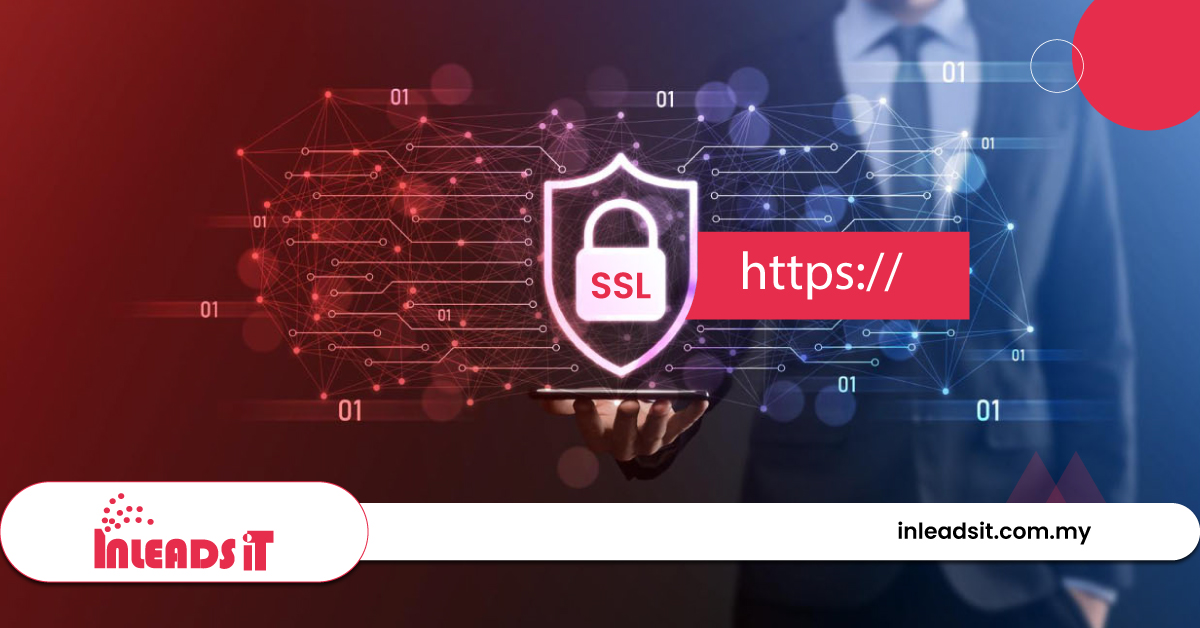
In today’s digital age, where the internet is the cornerstone of communication, commerce, and information sharing, ensuring the security of online interactions has never been more critical. As we navigate the vast digital landscape, it’s paramount for websites to earn the trust of their users and safeguard their sensitive data. This is precisely where SSL (Secure Sockets Layer) certificates come into play.
Understanding SSL Certificates
Before we delve into the compelling reasons why every website should prioritize obtaining an SSL certificate, let’s first demystify what SSL entails and how it operates. SSL, which stands for Secure Sockets Layer, is a cryptographic protocol designed to encrypt the data exchanged between a user’s web browser and a website’s server. This encryption ensures that any information transmitted remains confidential and secure.
Data Security Matters
- Protecting User Data: The most fundamental reason why every website needs an SSL certificate is to safeguard user data. When individuals entrust their personal information, such as login credentials, credit card details, or contact information, to a website, they do so with the expectation that this information will remain private. SSL encryption guarantees that sensitive data cannot be intercepted by malicious entities, thereby establishing a secure online environment.
- Preventing Cyber attacks: Websites lacking SSL protection are vulnerable to a myriad of cyber threats, including data breaches and man-in-the-middle attacks. The consequences of such attacks can be devastating, not only for the website owner but also for the users who rely on the site for secure transactions and interactions.
Building Trust and Credibility
- Boosting Trustworthiness: Websites equipped with SSL certificates visibly demonstrate their commitment to user security. Visitors notice the padlock icon and the “https://” prefix in the browser’s address bar, indicating a secure connection. This visual assurance instills trust and confidence in users, setting the foundation for a positive online experience. Conversely, websites without SSL certificates may raise suspicions among visitors.
- Positive Impact on SEO: Search engines, led by Google, place a significant emphasis on user experience and security. Websites that have SSL certificates tend to rank higher in search results. This is because search engines aim to direct users to secure and reliable sources of information. By adopting an SSL certificate, you not only enhance trust but also improve your website’s SEO ranking, leading to increased visibility and traffic.
Legal and Compliance Requirements
- Meeting Legal Obligations: In certain regions and industries, there are stringent legal requirements for websites to secure user data. Non-compliance with these regulations can result in severe penalties and reputational damage. An SSL certificate is a proactive step toward fulfilling these obligations, mitigating legal risks, and preserving your website’s integrity.
SSL Certificates: Types and Options
Having established the criticality of SSL certificates, it’s essential to explore the various types available, each catering to different needs and preferences:
1. Domain Validation (DV) SSL Certificates
DV certificates are the entry-level option, ideally suited for personal websites, blogs, or small businesses. They verify the applicant’s control over the domain, offering a basic level of encryption and security.
2. Organization Validation (OV) SSL Certificates
For small to medium-sized businesses and e-commerce sites, OV certificates provide a higher level of validation. They confirm the legitimacy of the organization owning the domain, offering enhanced security and trust.
3. Extended Validation (EV) SSL Certificates
EV certificates are the gold standard in SSL security. Websites with EV certificates display the organization’s name in green in the browser’s address bar, providing the highest level of trust and security. This option is recommended for large enterprises, online retailers, and any entity seeking to convey the utmost trustworthiness to its users.
How to Obtain Your SSL Certificate
Now that you understand the significance of SSL certificates and the various types available, let’s walk through the process of obtaining one for your website:
- Choose a Reputable Certificate Authority (CA): Begin by selecting a trusted Certificate Authority to purchase your SSL certificate. Renowned CAs include Comodo, DigiCert, and GlobalSign.
- Generate a Certificate Signing Request (CSR): From your web hosting control panel, generate a Certificate Signing Request (CSR). This request contains essential details about your website and is used to create your SSL certificate.
- Submit Your CSR: Provide the CSR to your chosen CA, initiating the validation process. The CA will verify your domain ownership or organization details, depending on the certificate type you’ve selected.
- Install Your SSL Certificate: Upon successful validation, you’ll receive your SSL certificate from the CA. Follow your web hosting provider’s guidelines to install it on your server, ensuring that your website is fully secured.
Elevating Trust with Inleads It
At Inleads It, we understand the pivotal role that SSL certificates play in enhancing data security and trust. Our commitment to providing cutting-edge solutions for website security and user confidence has made us a trusted partner for businesses across various industries.
Statistics That Speak Volumes
To emphasize the significance of SSL certificates, consider these compelling statistics:
- Websites with SSL certificates are 40% more likely to rank higher in search engine results pages (SERPs).
- 85% of online shoppers avoid unsecured websites when making online purchases.
- The average cost of a data breach for a small business is $120,000 – a cost that could be significantly reduced with proper SSL protection.
- SSL encryption has evolved to offer stronger security, with the latest TLS 1.3 protocol providing even faster and more secure connections.
In conclusion, the necessity for SSL certificates in today’s digital landscape cannot be overstated. Every website, regardless of its size or purpose, must prioritize data security and user trust. SSL certificates not only protect sensitive data and prevent cyber threats but also boost trustworthiness and positively impact SEO rankings.
By choosing Inleads It as your partner in website security, you’re not only safeguarding your users’ data but also elevating your online presence. Remember, an SSL certificate is not just a security measure; it’s a symbol of trust, credibility, and commitment to your audience.
So, take the decisive step toward a safer and more trustworthy online environment by investing in an SSL certificate from Inleads It. Your website’s security, reputation, and success depend on it.
FAQ
What is an SSL certificate, and why do I need one?
An SSL certificate, or Secure Sockets Layer certificate, is a digital certificate that serves as a cryptographic key to encrypt the connection between a user’s web browser and a website’s server. You need an SSL certificate for several critical reasons. Firstly, it ensures that sensitive data, such as login credentials, credit card information, and personal details, exchanged between the user and the website remains confidential and secure. This encryption is essential in protecting your users from potential data breaches and cyberattacks, instilling trust and confidence in your online platform. Additionally, search engines like Google prioritize secure websites, so having an SSL certificate can positively impact your search engine rankings, leading to increased visibility and traffic.
Are there different types of SSL certificates, and how do I choose the right one?
Yes, there are several types of SSL certificates, each catering to different needs and security levels. The three main types are Domain Validation (DV), Organization Validation (OV), and Extended Validation (EV) certificates. Choosing the right one depends on your website’s purpose and your desire to convey trust and security to your users. DV certificates are the most basic, ideal for personal websites or blogs, as they verify domain ownership. OV certificates provide a higher level of validation, confirming the legitimacy of the organization owning the domain, making them suitable for small to medium-sized businesses. EV certificates offer the highest level of trust, displaying the organization’s name in green in the browser’s address bar, recommended for large enterprises and e-commerce platforms aiming for the utmost credibility.








